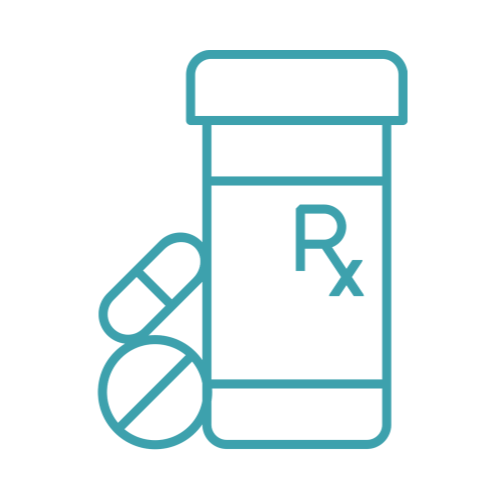Most commonly asked questions about DCI
The following is for informational purposes only:
 Medications and Chiral Balance 600mg D-chiro-inositol.
Medications and Chiral Balance 600mg D-chiro-inositol.
DCI is not known to interfere with any medications. DCI showed no side effects in clinical trials.
We don't recommend you take it with androgen antagonists.
We offer natural alternatives, so as a rule, it's best not to take two things that are trying to work on the same mechanism of action.
We always recommend you speak to your doctor before combining any supplement with other drugs.
Oral Contraceptives
Oral contraceptive pills do not interfere with the function of DCI or vice versa.
 DOSAGE- How should I take my Chiral Balance D-chiro-inositol?
DOSAGE- How should I take my Chiral Balance D-chiro-inositol?
Our recommendation is to take one 600 mg capsule for every 130 pounds of body weight.
It is important to take Chiral Balance DCI on a regular schedule. If you forget or miss a dose, take the missed dose as soon as possible and resume your regular schedule the next day
Are there any added ingredients to DCI?
No. Each capsule contains 600 mg of pure DCI—no fillers, additives, adjuncts, excipients, or binders.
Not many people realize a lower dose DCI 50mg capsule has to be filled with a very high percentage of leucine (or a similar type of filler) to make the capsule look full.
Is it vegan?
Yes. The capsule is made of hypromellose, a vegetable material.
Can I get DCI from diet?
There are few foods that contain DCI. The foods with the highest content of DCI are black wheat, soy-lecithin, carob and specific kinds of lentils.
Following those are oranges (more concentrated in the skin and pulp and less in the juice), peanuts and beef liver. Finally with a lower content we find buckwheat, farinetta and oats.
HOWEVER: The amount of these foods you would have to eat to get a therapeutic effect is near impossible on an “average” diet.
Why is DCI so expensive?
Because DCI is so rare in nature, it cannot simply be extracted form plants like myo. Our DCI is made by extracting pinitol (another form of inositol) from carob, then converting the pinitol to DCI. This is a difficult process that only a few companies in the word perform.
 Is D-chiro-inositol safe during pregnancy and while breastfeeding?
Is D-chiro-inositol safe during pregnancy and while breastfeeding?
While the expected risk to the child would be negligible, D-chiro-inositol has never been evaluated in a clinical trial for its use or safety during pregnancy or while breastfeeding. It is unknown whether it is safe, and therefore the question of whether to use it during pregnancy or while breastfeeding is best made in conjunction with your physician who can help weigh the benefits and risks.
Will I need to take Chiral Balance D-chiro-inositol forever?
Whatever benefits you experience from using Chiral Balance D-chiro-inositol will continue as long as you use the supplement as a natural part of healthy metabolism. Any symptoms Chiral Balance D-chiro-inositol has relieved will likely return if you stop taking the supplement.
I can't swallow pills - Can I empty the capsules into a beverage?
Yes! The powder inside is PURE DCI - no filler or excipients. It will dissolve and not change the efficacy at all.
![]()
Collection of videos created by Chiral Balance.
The first video below is an animation that explains DCI deficiency in some women.
Think of impaired conversion of myo-inositol to D-chiro-inositol as a spectrum.
Some people make the conversion efficiently, and some don't at all - for various reasons.
Female DCI Deficiency Example
An Introduction To DCI and How Healthcare Professionals Use It In Practice
Our series of informational videos featuring Dr. Screven Edgerton, Ob/Gyn, and Amy Grove, a Physician Assistant who graciously share some of their knowledge and experience.
Are Chiral Balance Products FDA approved?
Our products are not FDA approved because they are all-natural nutritional supplements. The Food and Drug Administration (FDA) does not regulate supplements.
Instead, the Dietary Supplement Health and Education Act of 1994 (DSHEA) defines whether or not a product is a nutritional supplement. The DSHEA defines our products as nutritional supplements, and therefore the FDA does not regulate them.




